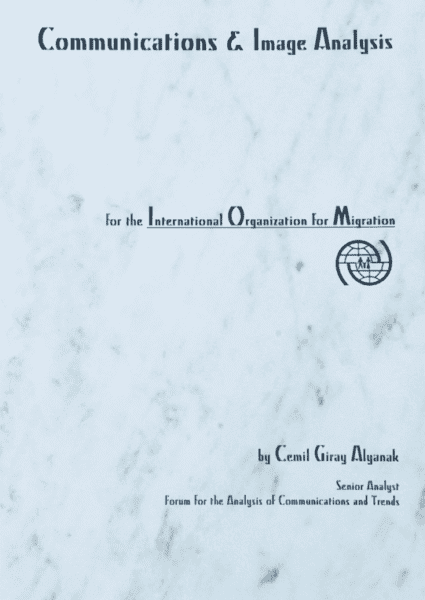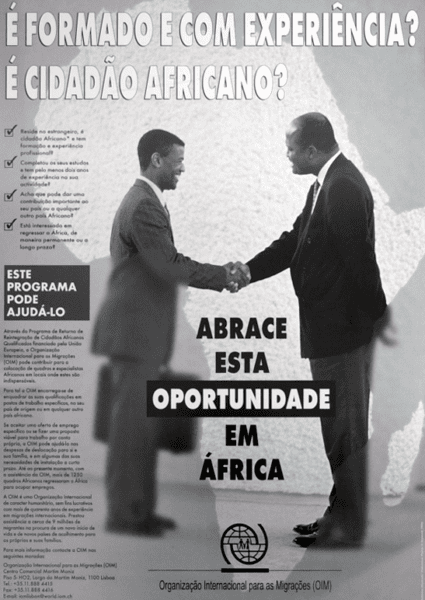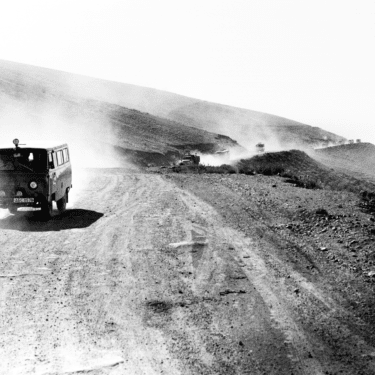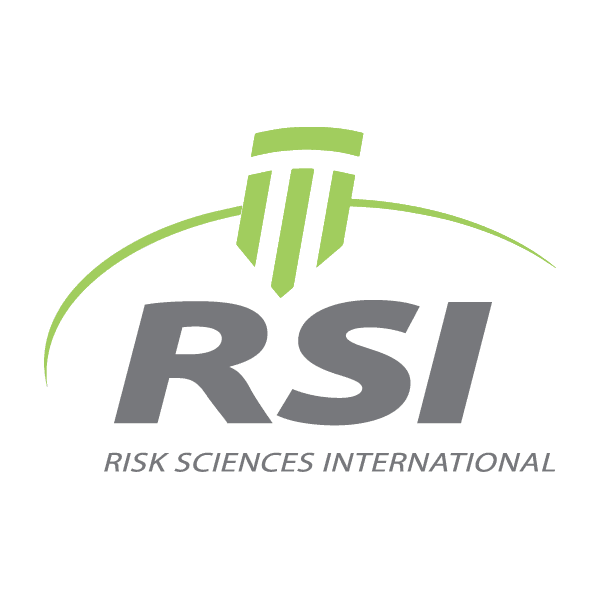Case Study Client: International Organization for Migration (now: UN Migration) Grand-Saconnex, Switzerland
Listing of the client in no way affirms the client's support, sponsorship, or validation in any form of Risk Sciences International or the RSI staff member(s) who conducted this project during their stay with RSI or prior to joining the company. This case study is displayed for informative purposes only to demonstrate the capacity of RSI staff members. This case study reveals no proprietary information or information deemed sensitive.
Mandate
At the time of the report, in 1995, the International Organization for Migration (IOM) had 76 member states but was not a member of the United Nations (UN) system. Simultaneously, much of its mandated work was being duplicated by another agency, United Nations High Commission for Refugees (UNHCR). Of note, while the politics were raging, humanitarian and displacement problems were rapidly increasing throughout the Middle East and Africa. Economic migration pressures were high as was the push factor caused by human rights violations. If there ever was a need for IOM post-WWII, the mid-nineties was the time. There was a risk that at its time of greatest usefulness, the organization would be pressured out of a mandate.
Now RSI Vice-President, Communications and Strategic Initiatives, Cemil Alyanak, was asked by then Director-General Jim Purcell, to conduct an organization-wide analysis and make recommendations both as to IOM's mandate and its stakeholder relations. The goal was to determine whether or not there was sufficient support for an empowered IOM or, to the contrary, whether there was a preference for a merger with UNHCR.
Work
 Under the supervision of Director Purcell and his cabinet, the six-month project began with an internal review of attitudes, projects, responsibilities and management reporting lines. The work uncovered multiple inconsistencies and inefficiencies. What's more, there were very real risk consequences at the operational level.
Under the supervision of Director Purcell and his cabinet, the six-month project began with an internal review of attitudes, projects, responsibilities and management reporting lines. The work uncovered multiple inconsistencies and inefficiencies. What's more, there were very real risk consequences at the operational level.
Next, the project turned towards the media and other external stakeholders including partner organizations. What was their perception of IOM? Did they have a preferred denouement.
The third, and most delicate phase of the investigation, was to delve into stakeholder perceptions. What did member countries believe, what did they want, and what were they saying privately among themselves. Of course, this line of inquiry would be both sensitive and obstacle-ridden. Countries are complex systems combining individual preferences, public policies, and behind closed doors negotiations and compromise. Ultimately, the analysis included information from, or on, 54 countries including interviews with heads of state, ministers, and ambassadors.
The analysis, per se, was a combination of transcription, intent analysis, evaluation of veracity, and likely outcomes.
Outcomes
 The resulting 500-page report was well received and led to a two-year retainer to guide the Organization through its transformation. Ultimately, the IOM became a member of the UN family and a sister agency of UNHCR. Their working relationship is now considered by most parties to be both amiable and effective.
The resulting 500-page report was well received and led to a two-year retainer to guide the Organization through its transformation. Ultimately, the IOM became a member of the UN family and a sister agency of UNHCR. Their working relationship is now considered by most parties to be both amiable and effective.
During the retainer, much output was produced including television documentaries, worldwide legal migration campaigns, such as this African campaign to slow the brain drain, the founding of a periodical and the launch of a website and engagement platform.
Posted in Case Study
More RSI Case Studies
RSI presents a very small selection of case studies to highlight some of its key work.
The review involved an analysis of the events and processes that led to public criticism of Health Canada’s handling of the drug company’s recall of a contraceptive drug due to…
Read MoreRSI was tasked with providing scientific advice and content for a nuclear power reactor licensing process in an OECD country. The nuclear safety commission in question regulates and licenses all…
Read More- « Previous
- 1
- 2




